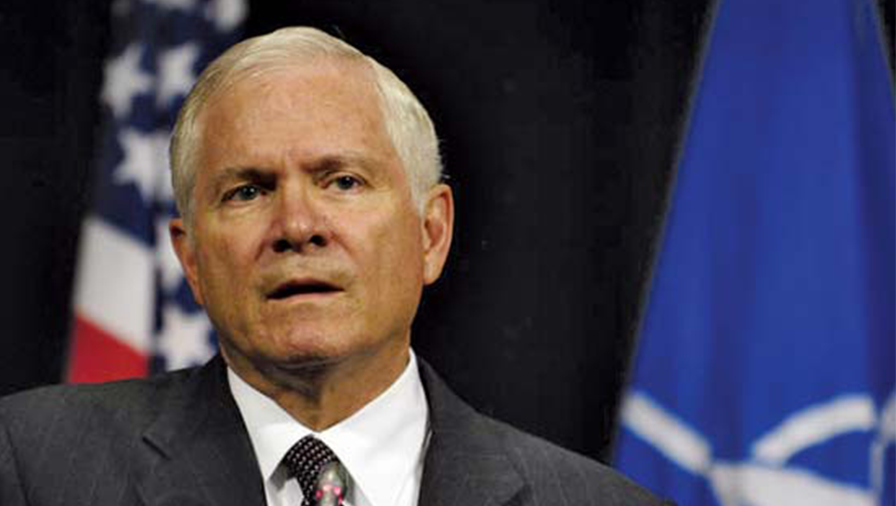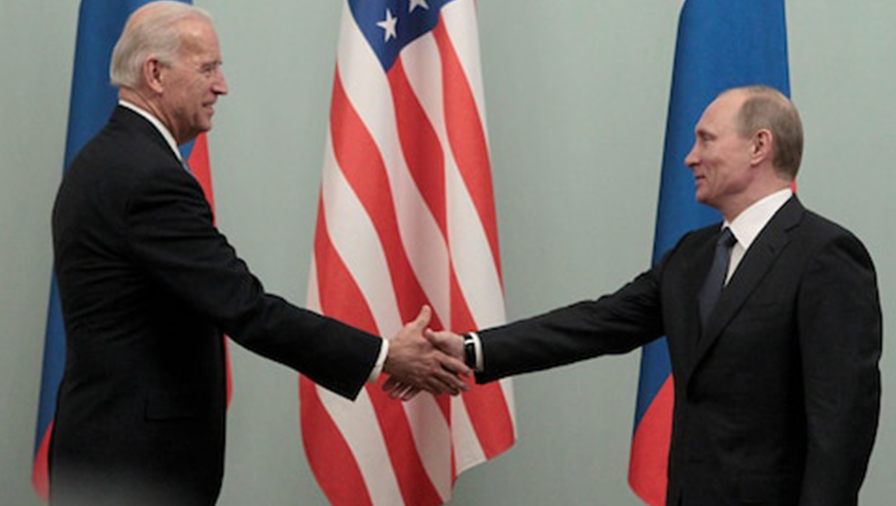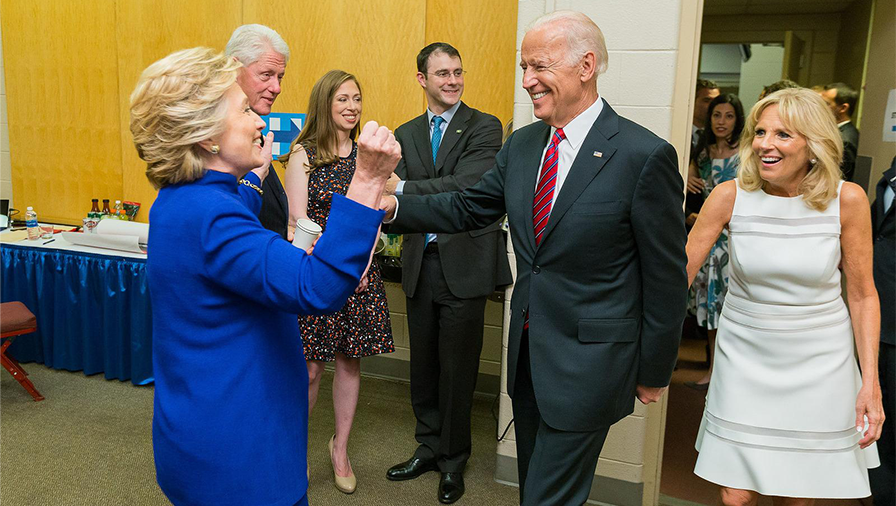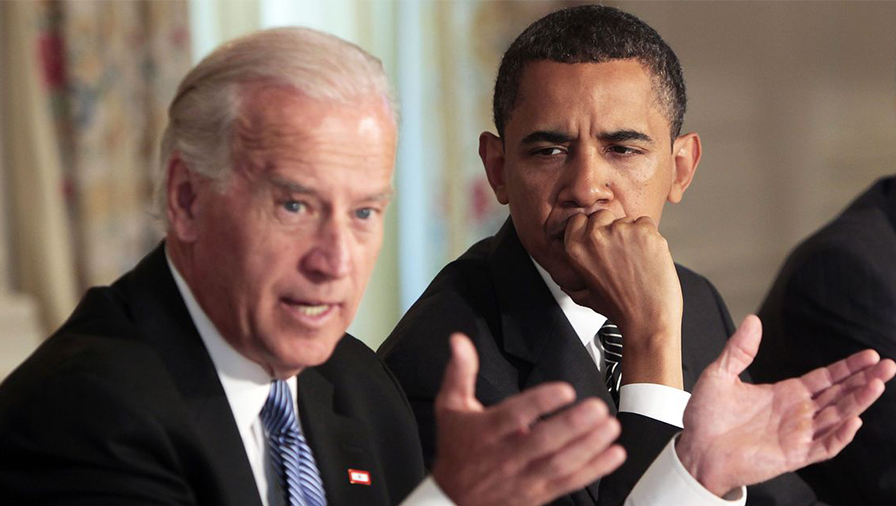The Biden Ascendancy: Life and times of America’s oldest president
Book Review: New Joe Biden biography explores how his past will influence the future.
Book Review: New Joe Biden biography explores how his past will influence the future.
The word extremist is not one you would apply to Joe Biden, the 46th President of the US, yet his two major political milestones are at opposite ends of the spectrum.
At 29, in 1972, he was elected by the state of Delaware as the youngest senator in American history. At 78, he is the oldest elected US president (Ronald Reagan was 69).
Biden has held public office for that entire period, except for his four years of semi-retirement during the Trump administration. For eight years he was vice-president in the Obama administration.
That makes him the most experienced of all American presidents and his record of success and failures is one of the longest of any federal lawmaker.
Yet to many, Biden’s profile is paradoxically that of a low-profile politician without any significant achievement or legacy. That reputation changed since he won the Democratic nomination in 2016, ousting many younger and higher-profile candidates.
For outsiders, the Biden biographical industry has stepped up, producing at least a dozen recent examples, including two by his second wife Jill, one of which is aimed at children. In addition, Biden has written two memoirs, in 2007 and 2017, both mainly about crises in his personal life.

For review, I chose Evan Osnos’s Joe Biden: American Dreamer, mainly because of the author’s New Zealand connection. He was here a while back when researching a story for The New Yorker magazine on super-rich “preppers” buying hideaway properties and bunkers to survive a global apocalypse.
Osnos is no stranger to Biden, having first profiled him in 2011 and followed with regular articles up to his election in November 2016. The book is based on these articles and interviews with some 100 others, for publication just after the inauguration in January and events surrounding Donald Trump’s refusal to concede defeat.
The early years
Like many ambitious Americans, the young Joe Biden wanted to be president from an early age. His early political career, after gaining a law degree (76th out of 85 at Syracuse University) and a brief period as a public defender, was marred by the death of his first wife Neilia and their baby daughter Naomi in a car crash. Their two sons, Beau and Hunter, were badly injured.
This left Biden a solo parent before he had even been sworn in as a senator. His sister Val moved in to help raise the boys for four years.
Jill Jacobs, a student at the University of Delaware and a career school teacher, entered his life two and a half years later as a blind date set up by Biden’s brother. The couple married in 1977 and they had a daughter, Ashley, who became a social worker.
Biden’s family tragedies didn’t end there. In 1988, he collapsed and nearly died from an aneurysm; Beau died after being diagnosed with brain cancer in 2013; and a year later Hunter was discharged from the Navy Reserve for cocaine addiction.
While Biden has never hidden his personal life, nor has he exploited it beyond him being seen as one of the empathetic types in a working environment that has destroyed many of lesser moral standing.
Presidential ambitions
Biden first revealed his presidential ambitions in 1987, the year he made a name for himself as the Senate’s Judicial Committee chair and opponent of Robert Bork’s nomination to the Supreme Court. Bork, a prominent conservative, lost by a narrow margin, boosting Biden’s reputation among pro-abortion liberals, although he was a Catholic. But it was not enough to give Biden a fighting chance for the Democratic nomination.
Not long afterward, Biden was a critical player in another Supreme Court drama over the appointment of Clarence Thomas, another conservative. His candidacy was strongly opposed because of accusations he sexually harassed Anita Hill.

Biden refused permission to hear evidence from some of her supporters, possibly tipping the balance in favour of Thomas. He was endorsed 52-48, though Biden himself cast a negative vote.
Biden waited 20 years before his presidential hopes were realised in his selection by Barack Obama as his running mate in the 2008 campaign.
Obama was a first-term senator and valued Biden’s experience in national security and foreign policy, fields where Biden had built up a valuable network of contacts around the world.
Then aged 65, Biden inherited a vice-presidential role that had been enhanced by his predecessor, Dick Cheney, under George W Bush. As depicted in the movie Vice, Cheney took part in all the important meetings held at the White House.
This was a contrast to the 1960s, when the Kennedy brothers kept vice-president Lyndon Johnson well away from the reins of power.
Foreign policymaker
Biden’s affable, not to say garrulous, style often got him in trouble for being too close and personal at times. But he served America well when dealing with overseas leaders. His “unguided candour,” as Osnos puts it, allowed him to dispense with diplomatic niceties, as well as enabling him to see an issue from both sides rather than just accepting his briefing notes.
“You’ve got to start off with the assumption: the other guy’s not an idiot. And most people aren’t stupid about their own naked self-interest,” Biden told the author.
Biden also told Osnos that he was once literally up Russian dictator Vladimir Putin’s nose. “I said, ‘Mr Prime Minister, I’m looking into your eyes, and I don’t think you have a soul’,” adding: “… he looked back and me, and he smiled, and he said, ‘We understand one another.’ ”

Legislative record
Biden has several regrets for his legislative and foreign policy record. A long-standing enmity with Bob Gates, a former Republican secretary of defence and head of the CIA, claimed Biden had been wrong on every substantial foreign policy decision over four decades. These included Vietnam, Iran, the Reagan arms build-up, and the first Gulf War.
For his part, Biden told Osnos that he hadn’t welcomed the fall of the Shah in Iran, and said Gates had been wrong about Gorbachev, the Nato bombing of Serbia, and Vietnam. Osnos says Biden admitted his biggest foreign policy mistake was voting for the second invasion of Iraq.
As vice-president, he opposed then Secretary of State Hillary Clinton’s decisions to intervene in Libya, the Osama bin Laden raid, and the surge in Afghanistan.

On the domestic front, Biden has had second thoughts on the 1994 Crime Act, which introduced the ‘three strikes’ law and greatly increased incarceration levels. Biden’s natural caution made him a champion of personal responsibility and a sceptic of unlimited welfare.
His biggest regret in the economic sphere was his support for the 1999 repeal of the Glass-Steagall Act, which broke down the wall between trading and investment banks. This is often blamed for the global financial crisis of 2008-09.
Biden’s switch from a centrist capitalist to an economic populist and enemy of Wall Street was a feature of the 2020 election. He believed when the pendulum of history swung against Donald Trump it would be to experience and incrementalism, rather than the youth and progressive zeal many Democrats preferred.
Victory for moderation
He was right, as a three-day surge of support from moderates during the primary campaign suddenly burned off his leftist rivals such as Elizabeth Warren and Bernie Sanders. But, in a reversal of the usual form of primary politics, when candidates appeal to the extremes of party supporters, Biden wooed not just the moderates but also disaffected anti-Trump Republicans.
Once he had clinched the nomination, he embraced the left’s policies on energy, climate change, technology, and AI (artificial intelligence) as well as seeing big business a target rather than a friend.
Biden’s strategy proved a winner, with the Democrats largely united by his choice of a running mate Kamala Harris that ticked the boxes of radical identity politics while still putting a lifetime of political faith in bipartisanship co-operation with moderate Republicans.

This is a departure from Obama, who had no confidence in working with Republicans, thus creating one of the most fractious periods in American politics. In many ways, Osnos suggests, this is another contrast with the 1960s.
The Kennedys not only ignored Johnson, their vice-president, but also rejected bipartisanship. By contrast, Johnson, a much more experienced politician in the Biden mould, was able to carry out far-reaching reforms that the Kennedys could only dream about.
Biden’s presidency could well do the same. He believes in bigger and more efficient government, and is appointing activist progressives to key positions. But he will also reach out to the moderate and anti-Trump Republicans as an endorsement of traditional rather than divisive politics.
Joe Biden: American Dreamer, by Evan Osnos (Bloomsbury).
Nevil Gibson is a former editor at large for NBR. He has contributed film and book reviews to various publications.
This is supplied content and not commissioned or paid for by NBR.
Recommended reading:
In his sources, Osnos cites Biden’s memoirs, Promises to Keep (2007) and Promise Me, Dad (2017).
Steven Levingston’s Barack and Joe: The making of an extraordinary partnership (2019).
Angler: The Cheney Vice Presidency, by Barton Gellman (2008).
Crackup: The Republican implosion and the future of presidential politics, by Samuel L Popkin (2021).